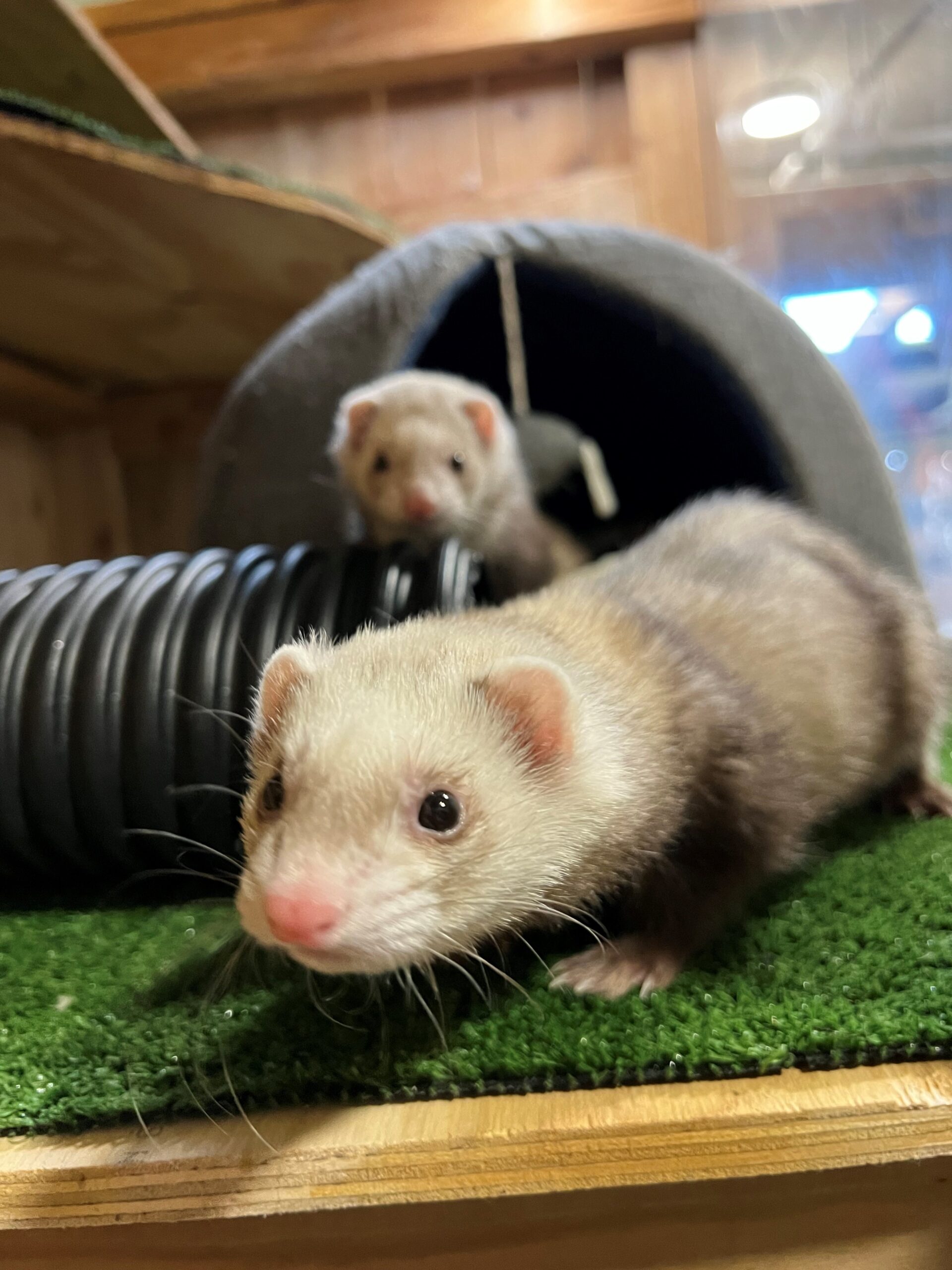The City of Lawrence Prairie Park Nature Center was selected as a permanent loan site for two female European ferrets that were part of the first successful project involving the cloning of any North American endangered species, which in this case was the cloned black-footed ferret Elizabeth Ann who gained international notoriety in January 2021.
The U.S. Fish and Wildlife Service’s National Black-Footed Ferret Conservation Center in Wellington, Colo., selected the nature center to house the ferrets to tell the educational side of the project. The European ferrets were used as surrogates, one as a birth surrogate, Lizzie, and the other as a nursing surrogate, Annie. Because the black-footed ferret was delivered by C-section, Lizzie wasn’t able to nurse the cloned black-footed ferret once delivered, while the other European ferret, Annie, was used to wean Elizabeth Ann during its beginning stages.
The nature center has housed a black-footed ferret since April 2012 and current resident Pancake has been at the center for several years to help educate people about the plight of the black-footed ferret and its struggle to regain its population. Pancake, a female black-footed ferret, was once used for breeding at the conservation center and, after her retirement, she was loaned permanently to the nature center to assist with education.
There are approximately 600 black-footed ferrets in the wild today with the conservation center housing approximately 280 black-footed ferrets, while guesstimates have those living in the wild at a little more than 300 ferrets; however, there is no real way to determine the exact number.
The black-footed ferret is North America’s most endangered mammal. First thought to be extinct in 1964, a small population of the black-footed ferret was found in South Dakota. A captive breeding program was begun with a few of the captured animals, but failed. In 1967 the black-footed ferret was added to the endangered species list. In the late-1970s the black-footed ferret was thought to be once again extinct, but in 1981 a population of the ferret was discovered in Meeteetse, Wyo. Between 1985 and 1987, the black-footed ferrets were removed to initiate a captive breeding program again due to a disease outbreak. Since that time many have been released into the wild in 11 states, including Kansas. The Kansas reintroduction program, located in Logan County, began in 2007 and is being monitored carefully to determine its success.
The black-footed ferret is largely a nocturnal and solitary animal, except when breeding or raising litters. Its diet is largely composed of prairie dogs.
For more information on the black-footed ferret or the European ferrets now housed at the nature center, please contact Prairie Park Nature Center, at (785) 832-7980.

Black Footed Ferrets at Prairie Park Nature Center in Lawrence, KS.
